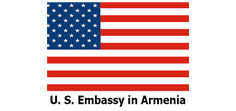Recently, Prime Minister Nikol Pashinyan’s statements that there is no oligarchy and there are no oligarchs in Armenia have led to a widespread debate. Pashinyan made these statements on October 18, 2018 after the opening ceremony of a mining company near Arinj Mall, which he was attending along with Gagik Tsarukyan. The statement was made in response to a number of questions about Tsarukyan’s status and whether the latter was an oligarch. Pashinyan had made a similar claim on September 16 too during the Yerevan City Council election campaign.
The following day, during the rally in Kapan, Pashinyan explained in more detail what he actually meant: “Oligarchy means the power of few. An oligarch is a representative of the power of few. Therefore, by saying that there is no oligarchy in Armenia and there are no oligarchs I state that the power of few has been overthrown in Armenia. Now it is the power of many, the power of people, your power established in Armenia.”
He also added, “This does not mean that those who were oligarchs before, or were coined an oligarch, have stopped being one. However, their status of an oligarch has stopped being as such because there cannot be a person in Armenia who may think he is stronger than the people, who may think his power is stronger than the power of the people or the state power. ”
Defininion of an oligarchy and an oligarch.
In Kapan, Pashinyan brought the classic western definitions of the words oligarchy and oligarch.
After all, the term “oligarchy” comes from the Greek word ὀλιγαρχία which consists of ὀλίγος (oligos, “several”) + -αρχία (-archia, “power”).
However, there is a deeper definition in contemporary political science. For example, American political scientist Jeffrey A. Winters offers the following definition in his book Oligarchy (Oligarchy, 2011). According to him, oligarchs are those who keep large material resources under their control, which they can use to protect or enhance their personal wealth and the exceptional social position. Therefore, the oligarchy is the policy of protecting wealth by the persons mentioned above.
In the post-Soviet context, particularly in Russia and Ukraine, the word “oligarch” is primarily used in reference to wealthy people (mainly the dollar billionaires) who have good relations with the president. Boris Berezovsky, Mikhail Prokhorov and Roman Abramovich are among the most famous oligarchs in Russia. There are also Armenian oligarchs in Russia; the most famous of them is Samvel Karapetyan.
Oligarchs in Armenia: In case of the former authorities and their period of government, the question as to whether there were oligarchs in Armenia or not, is not disputable- there are numerous evidence of their influence and role. Many of them are known for their nicknames, a fact that has often been a cause of ridicule by then opposition Pashinyan.
What concerns Tsarukyan, there is no doubt he was one of the oligarchs. For example, US Ambassador to Armenia John Evans, in WikiLeaks’ declassified secret document in 2006, described Tsarukyan as an “influential oligarch with business interest in various fields”.
American-Armenian historian and political scientist Simon Payaslian calls Tsarukyan “the richest and most famous member of the ruling oligarchy in Armenia” in his book about independent Armenia.
Whether or not there are oligarchs in Armenia depends on which of the definitions of an oligarch we choose. If we base on the post-Soviet definition, there are no oligarchs, since no major businessperson has close ties with Pashinyan or the higher circles of his government which he/she can use to protect or expand their wealth. If we take Winters’ definition, Tsarukyan may be considered an oligarch to some extent because he still has some political influence, particularly in the face of 30 MPs representing Tsarukyan bloc.
That influence stems from his possessions. However, his influence significantly decreased after Pashinyan dismissed governors and ministers representing Prosperous Armenia Party in early October.
Hovhannes Nazaretyan

 FACTOMETER
FACTOMETER









